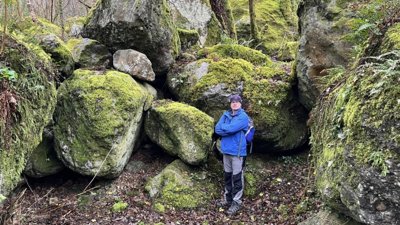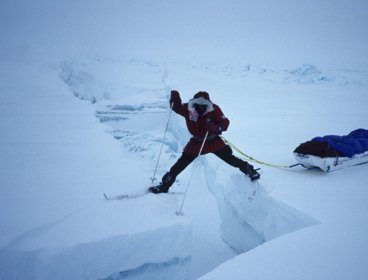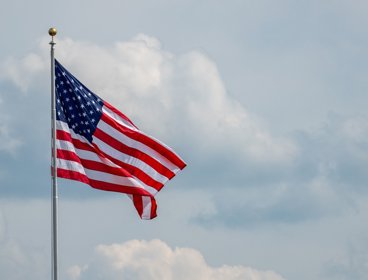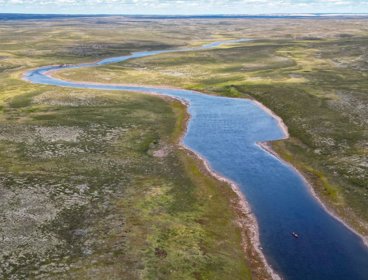On 2 November 1925, a catastrophic flood swept through Dolgarrog village in north Wales, depositing enormous boulders and killing 16 people. In 2025, what have we learnt from this flood disaster?
The Dolgarrog disaster was a seminal event for civil engineering and for the design of dams/reservoirs in the UK. The geomorphological impacts of the flood were set out in the Geographical Journal in 1928 in a now classic paper. It was also obviously a tragedy for the local community – there will be media coverage around the time of the centenary
The Dolgarrog disaster is not widely known. We will look at all these themes in our lecture and include some of the original News footage.
About the speakers
Jamie Woodward is Professor of Physical Geography at the University of Manchester. A key theme in his research and teaching is how humans interact with rivers past and present. This has involved fieldwork across the Mediterranean, in the Nile Valley, and in the river catchments that converge on the city of Manchester.
He has given Monday night lectures on the history of the Nile Valley in northern Sudan and on microplastics in UK rivers. Jamie has recently published A Little History of the Earth in the best-selling Yale University Press series. Jamie served as Vice President, Research and Higher Education on the Society’s Council from 2022 to June 2025.
He is a Fellow of the Royal Geographical Society and of the British Society for Geomorphology.
Jeff Warburton is Professor in Geomorphology at Durham University, UK. His research is concerned primarily with understanding the geomorphology and sediment transfer processes operating in upland and mountain catchments. Particular emphasis is placed on upland peat erosion; peat mass movements; debris flows / shallow landslides and the geomorphology of mountain streams.
This work is underpinned by intensive field monitoring programmes, geomorphological laboratory experiments and sediment budget analysis. He is a fellow of the British Society for Geomorphology and Millennium Fellow of the Royal Society and British Academy.
Stephen Tooth is a Professor of Physical Geography in the Department of Geography and Earth Sciences at Aberystwyth University. His research and teaching interests involve reconstructing past and present-day landscape changes and projecting future changes resulting from climate variability and human activities. His main focus is on the role of rivers as agents of landscape change.
Stephen has travelled widely looking at rivers in all their diversity, principally in southern Africa, India and Australia. In recent years, he has explored the role of visual and non-visual arts in stimulating conversations about global climate change and the Anthropocene to better understand humanity’s impact on the functioning of the Earth system.
He enjoys exploring the rivers and landscapes of Wales with family and friends, as this always provides fresh perspectives and new sources of inspiration.
Hywel Griffiths is a Reader in Physical Geography in the Department of Geography and Earth Sciences at Aberystwyth University, and his teaching and research interests focus on fluvial geomorphology, historical records and impacts of flooding and drought, science communication and creative geographies. He is also a poet and an author.
His interest in rivers was inspired by exploring and playing on the banks of the small streams of rural Carmarthenshire where he grew up. He has been lucky to have been able to continue to explore rivers in Wales, Ireland, Spain, Crete, Patagonia and Jordan as part of his work and all these river bank journeys, whether abroad or close to home, inspire his creative work.
For the past four years he served as Chair of the British Society for Geomorphology’s Outreach and Education Sub-Committee.
Booking information
Monday night lectures are open to Fellows and Members and are included in the cost of membership.
Attending in-person
- All Fellows and Members wanting to attend in person must pre-book a free ticket. You will receive an e-ticket with a QR code that will be scanned on arrival. Your ticket can be shown on a mobile phone or printed. If you do not have a smartphone, we can find your name on the door list instead.
- Doors open at 5.30pm. Please use the Society's entrance on Exhibition Road. The lecture will begin at 6.30pm.
- Monday night lectures are held in person in the Ondaatje Theatre. The bar will be open in the Map Room before and after the lecture. Please be advised all payments are card only.
- The Ondaatje Theatre is fitted with a hearing loop. For the best quality sound we recommend sitting on the outside rows of the front seating section.
- There is step free access to the theatre. Wheelchair spaces can be booked in advance. If you have any questions about the venue, please contact events@rgs.org
Watch online
- You do not need to pre-book to watch the lecture online.
- All Monday night lectures are livestreamed via our website so you can watch them from wherever you are.
If you have any questions or require assistance with your booking, please email events@rgs.org
Venue information
This event will be held in the Ondaatje Lecture Theatre at Royal Geographical Society (with IBG), 1 Kensington Gore, London, SW7 2AR.
Plan your visit to the Society and find more information about our venue, including our address, accessibility and transport links.
About Monday night lectures
Our Monday night lectures are exclusive to Fellows and Members and are included in the cost of membership. Members can book to attend the lectures in-person at the Society, or enjoy them live from the comfort of your own home.
These lectures are also recorded and uploaded to our website solely for members to catch up on whenever they like. If you would like to receive a weekly reminder email about the upcoming Monday night lecture, please sign up to our Updates about our Monday night lectures newsletter.
Accessibility at our events
We want everyone to feel welcome at our events. Key accessibility features of this event include:
- Step-free access to the event
- Accessible toilets
- Assistance dogs are welcome
- Hearing loop
For full details, please visit our accessibility page. If you have any questions or specific access requirements, feel free to get in touch with us on access@rgs.org



